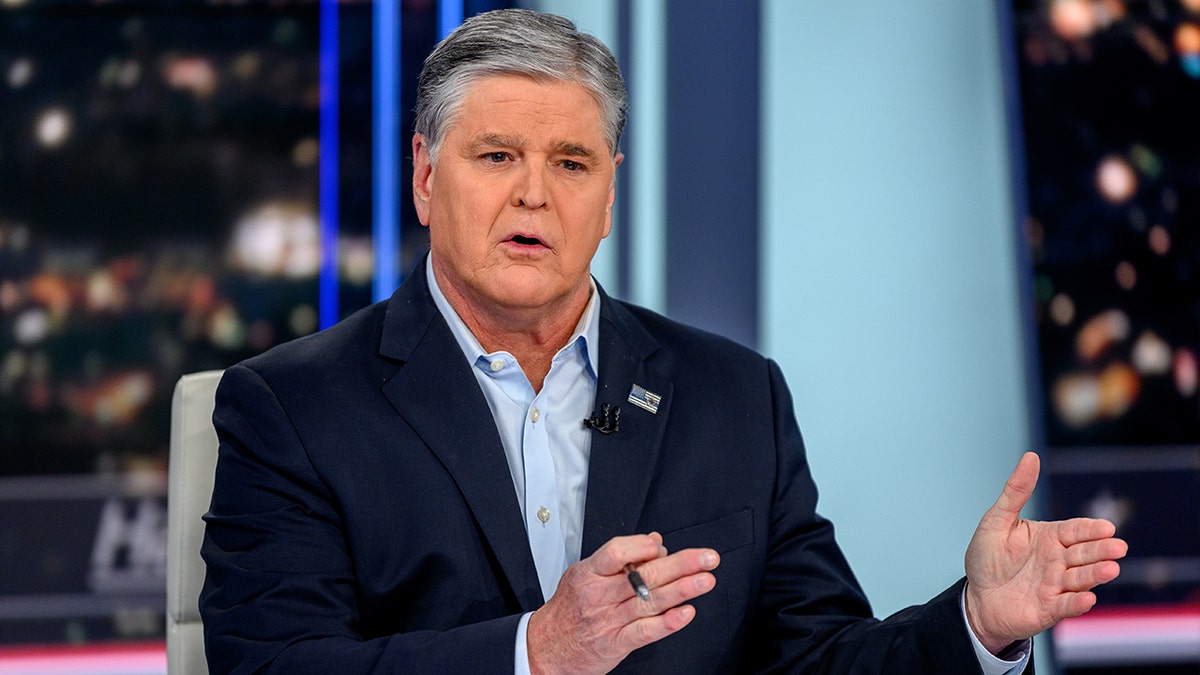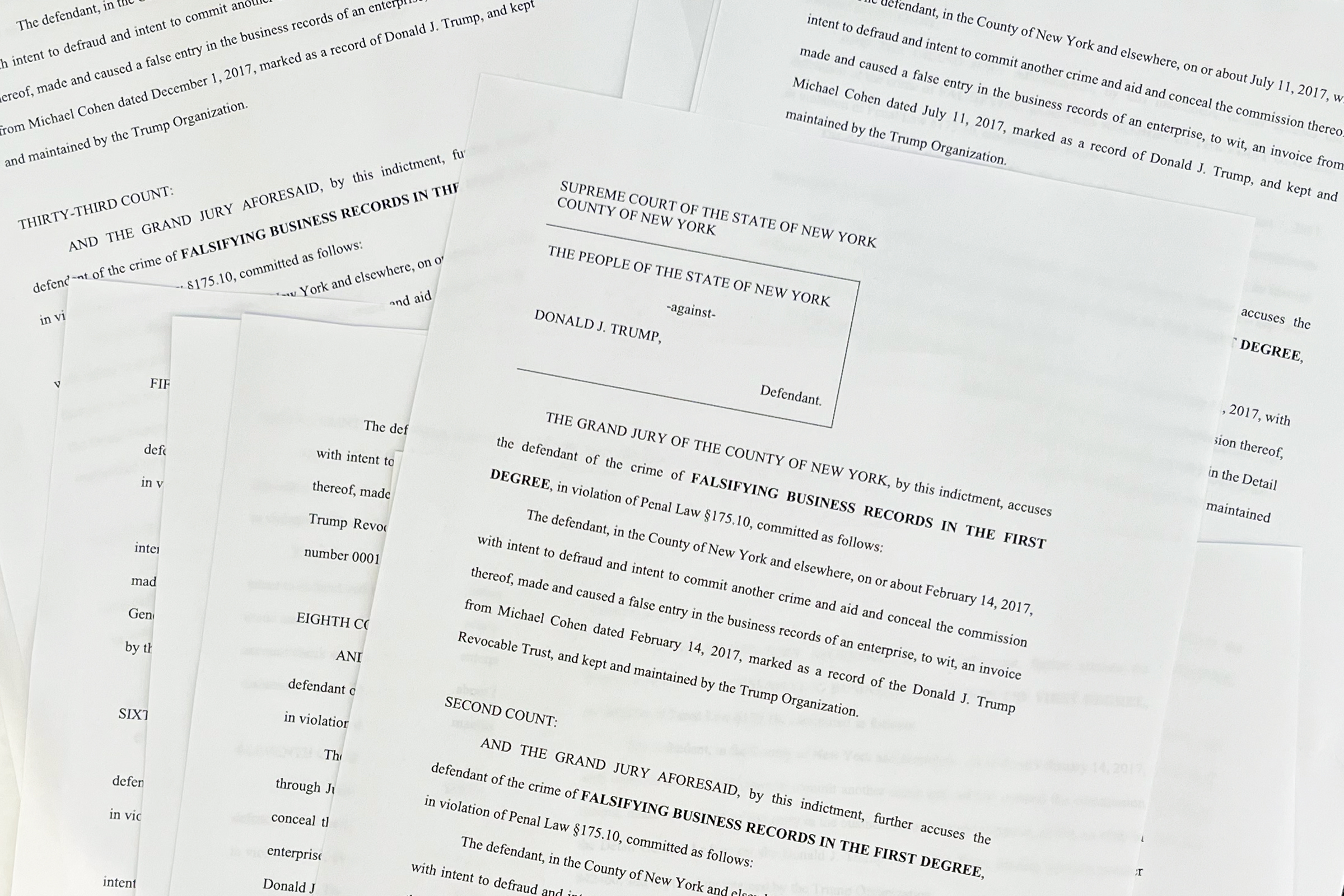Hannity Edits Trump's Team Response has become a hot topic of discussion in recent years, capturing the attention of political analysts, media experts, and ordinary citizens alike. The controversy surrounding this issue highlights the delicate relationship between media representation and political narratives. In a world where information is disseminated at an unprecedented pace, understanding the nuances of how media shapes public perception is crucial. This article aims to provide a comprehensive analysis of Hannity's role in editing Trump's team response, delving into the implications of such practices on media integrity and public trust.
The media plays a pivotal role in shaping public opinion, particularly in politically charged environments. Hannity, as one of the most influential conservative voices in American media, has been at the center of debates regarding the accuracy and impartiality of his reporting. By examining Hannity's edits of Trump's team response, we can gain insights into the strategies employed by media personalities to align narratives with their ideological perspectives.
This article will explore the intricacies of Hannity's edits, the potential motivations behind them, and the broader implications for media ethics. Through an analysis of relevant data, expert opinions, and historical context, readers will gain a deeper understanding of the complexities surrounding this issue. Let us embark on this journey to uncover the truth behind Hannity Edits Trump's Team Response.
Read also:Deiondra Sanders A Rising Star In The Entertainment Industry
Table of Contents
- Biography of Sean Hannity
- Hannity's Role in Modern Media
- Trump's Team Response: The Original Context
- The Controversy Surrounding Hannity's Edits
- Motivations Behind the Edits
- Impact on Media Ethics
- Public Perception and Reaction
- Data Analysis: Statistics and Studies
- Historical Context of Media Edits
- Conclusion and Call to Action
Biography of Sean Hannity
Early Life and Career
Sean Hannity, born on December 30, 1961, in New York City, has carved out a niche as one of the most prominent conservative commentators in the United States. His journey into media began with a background in broadcasting, where he honed his skills as a radio host. Hannity's career took off with his nationally syndicated radio show, "The Sean Hannity Show," which became a staple for conservative listeners across the country.
Biodata Summary
| Full Name | Sean Patrick Hannity |
|---|---|
| Date of Birth | December 30, 1961 |
| Place of Birth | New York City, New York |
| Occupation | Radio Host, Television Personality, Political Commentator |
| Notable Works | "The Sean Hannity Show," Hannity (Fox News) |
Hannity's transition to television solidified his status as a leading voice in conservative media. His show on Fox News, simply titled "Hannity," provides a platform for discussing political issues from a conservative perspective, often featuring interviews with prominent political figures.
Hannity's Role in Modern Media
Hannity's influence extends beyond traditional media platforms, as he leverages social media to amplify his message and engage with a broader audience. His role in modern media is not just that of a commentator but also a trendsetter in shaping conservative narratives. Hannity's ability to resonate with his audience lies in his knack for simplifying complex political issues into digestible content, often aligning with the views of his conservative base.
However, Hannity's role in modern media is not without controversy. Critics argue that his approach sometimes prioritizes ideological alignment over journalistic integrity, raising questions about the balance between advocacy and impartial reporting.
Trump's Team Response: The Original Context
Background of the Incident
The controversy surrounding Hannity Edits Trump's Team Response emerged during a critical period in American politics. The original response from Trump's team addressed pressing issues related to policy decisions and public statements. The context of the response was crucial in understanding the political climate at the time, highlighting the challenges faced by the administration in communicating effectively with the public.
Key Points in the Response
- Addressing economic policies
- Clarifying foreign relations strategies
- Responding to domestic policy criticisms
Trump's team response was crafted to provide clarity and reassurance to the public, emphasizing the administration's commitment to transparency and accountability. However, the subsequent edits by Hannity sparked a debate about the accuracy and intent of such modifications.
Read also:Andrey Rublev Rising Star In Tennis With Expertise And Authority
The Controversy Surrounding Hannity's Edits
Hannity's edits of Trump's team response raised eyebrows among media watchdogs and political analysts. The controversy stemmed from allegations that Hannity selectively edited portions of the response to align with his ideological framework, potentially altering the original intent and meaning. Such practices raise concerns about the reliability of media representation and the potential for bias to influence public perception.
Experts in media ethics argue that while editorial discretion is a necessary part of journalism, it must be exercised responsibly to maintain credibility. Hannity's edits, therefore, serve as a case study in the challenges faced by media professionals in balancing advocacy with journalistic integrity.
Motivations Behind the Edits
Political Alignment
One of the primary motivations behind Hannity's edits could be attributed to his strong political alignment with the Trump administration. As a staunch supporter of Trump's policies, Hannity may have sought to present the response in a manner that resonated with his audience's political beliefs. This approach aligns with the broader strategy of reinforcing ideological narratives within conservative media circles.
Media Strategy
From a media strategy perspective, Hannity's edits may have been aimed at increasing engagement and viewership. By tailoring the response to appeal to his audience, Hannity could enhance the impact of his show and solidify his influence within the conservative media landscape. This strategy underscores the competitive nature of modern media, where audience retention and growth are key metrics of success.
Impact on Media Ethics
The controversy surrounding Hannity Edits Trump's Team Response highlights the broader implications for media ethics. Journalistic integrity demands that media professionals adhere to principles of accuracy, fairness, and transparency. However, the increasing polarization of media outlets often blurs these lines, leading to practices that prioritize ideological alignment over impartial reporting.
Experts in media ethics emphasize the importance of maintaining a balance between advocacy and objectivity. While media personalities like Hannity have the right to express their opinions, they must also ensure that factual information is presented accurately and without bias. This balance is crucial in preserving public trust and upholding the standards of professional journalism.
Public Perception and Reaction
Public reaction to Hannity's edits has been mixed, reflecting the diverse opinions within the American populace. Supporters of Hannity argue that his edits provide a necessary perspective on complex political issues, while critics contend that such practices undermine the credibility of media institutions. Social media platforms have been abuzz with discussions and debates, further amplifying the reach and impact of this controversy.
A survey conducted by the Pew Research Center indicates that trust in media institutions is at an all-time low, with many Americans questioning the accuracy and impartiality of news reporting. Hannity's edits serve as a microcosm of this broader trend, highlighting the challenges faced by media organizations in maintaining public trust.
Data Analysis: Statistics and Studies
Studies conducted by reputable institutions provide valuable insights into the impact of media edits on public perception. A report by the Reuters Institute for the Study of Journalism found that selective editing of political statements can significantly influence public opinion, particularly among audiences with pre-existing biases. The study underscores the importance of responsible media practices in shaping informed public discourse.
Data from media monitoring organizations further support these findings, indicating a correlation between biased reporting and decreased public trust in media institutions. These studies serve as a reminder of the critical role media plays in shaping public perception and the need for adherence to ethical standards.
Historical Context of Media Edits
The practice of editing political statements is not new and has a long history in media. From the early days of print journalism to the digital age, media organizations have grappled with the challenges of balancing editorial discretion with journalistic integrity. Historical examples, such as the Watergate scandal and the Vietnam War coverage, highlight the potential consequences of media bias and the importance of ethical reporting.
Understanding the historical context of media edits provides valuable lessons for contemporary media professionals. By examining past practices and their impact on public perception, media organizations can strive to uphold the principles of accuracy, fairness, and transparency in their reporting.
Conclusion and Call to Action
In conclusion, Hannity Edits Trump's Team Response serves as a poignant example of the challenges faced by media professionals in balancing advocacy with journalistic integrity. The controversy surrounding this issue highlights the importance of responsible media practices in shaping informed public discourse. By adhering to ethical standards and maintaining transparency, media organizations can rebuild public trust and uphold the principles of professional journalism.
We invite readers to engage in this discussion by sharing their thoughts and opinions in the comments section. Your feedback is invaluable in fostering a constructive dialogue about the role of media in modern society. Additionally, we encourage you to explore other articles on our site to gain a deeper understanding of the complexities surrounding media ethics and public perception.


